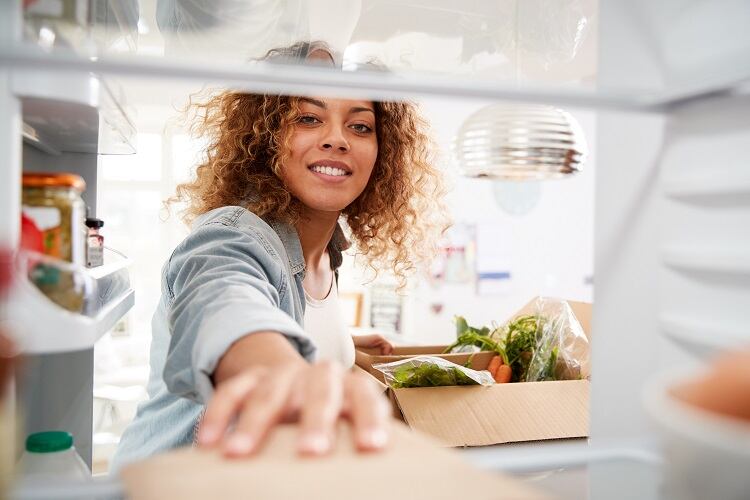Last week, Nestle reported its best quarterly growth for nearly five years as customers stockpiled food to deal with coronavirus shutdowns. In the investor call, Nestle Chief Executive Mark Schneider noted e-commerce as a ‘key area’.
“This is where we saw true significant increases,” he said. “I think some of that will be here to stay. I think one of the side effects of this crisis will be -- it will be kind of a breakthrough event when it comes to e-commerce for Food and Beverage. As you know, Food and Beverage categories tended to be somewhat slower when it comes to e-commerce compared to, for example, books or consumer electronics or something like that. I think some of that is changing now because people see the convenience of e-commerce in Food and Beverage as well.”
Opportunities ahead for online grocery
His comments tied with the positive views of forecasters on a sector that has long letdown expectations. According to Mintel, growth in the segment in the UK last year slowed for the fourth consecutive year as it continued to struggle to reach new customers, with much of the growth in the market coming from existing users. But then came the pandemic.
“The start to 2020 has seen growth rapidly accelerate due to the COVID-19 outbreak, the legacy of which will be opening up the online grocery market to large numbers of customers who may not have shopped for groceries online before,” said Nick Carroll, Associate Director of Retail Research at Mintel.
In its most recent five-year forecast made prior to the pandemic, market researcher IGD predicted that only 7.7% of UK sales would be online by 2024 – up from around 6% in 2019 and well down on the grandiose hopes of the sector a decade ago. But in light of the virus, it too believes the sector’s prospects will improve.
“In the UK, as in many other countries, retailers’ websites and operations are struggling to keep up with a huge increase in online grocery shopping during the ongoing Coronavirus (COVID-19) outbreak,” said Simon Mayhew, Head of Online Retail Insight at IGD.
“As such, retailers are redeploying staff, hiring new pickers and drivers, rolling out click and collect services and partnering with last mile providers to try to keep up with shopper demand.”
In the short-to-medium term, IGD expects retailers to continue increasing capacity by hiring more staff and delivery vehicles to get on top of demand for online grocery shopping. However, eventually they will shift their focus from increasing capacity to focus on profitability.
“This environment is ripe for new entrants, including some manufacturers that are setting up direct-to-consumer operations,” Mayhew added. “Meal-kit providers with online subscriptions will also fare well as people continue to stay at home and look for new solutions to get their food. However, for long-lasting success in this competitive market they will have to offer a differentiated service that offers value.”
The pandemic will boost the online grocery market in the UK, agreed Clive Black, head of research at Shore Capital, a broker. "The crisis has clearly brought a boost to online to the point that the capacity hasn't been able to meet the demand," he told FoodNavigator. "What will be enduring from the crisis will be an element of people who would rather not go to supermarkets going forward and will want to have home delivery."
He added there were two groups of people: the elderly and the vulnerable, who were new to the online grocery sector after being digitally connected by family and friends, and who would bolster the market in the future. "I think these two groups will probably have to endure more lockdown than younger folks and in that respect the market will nudge higher."
He added that supermarkets were capturing this new demand thanks to their massive efforts to recruit and train new staff to handle the additional delivery capacity and overall demand during the crisis. "I can see that sticking," he said.
The COVID-19 pandemic presents an opportunity for online shopping to “finally deliver”, said Erik Wallin, the co-founder of Swedish online grocery start-up Northfork.
“Supermarkets have spent years encouraging their customers to shop online more, offering everything from introductory incentives to rewards programs in order to try and tempt households into shopping from the comfort of home,” he said.
Yet retailers remain 'not yet mature' in their e-commerce activities, he noted. According to Profitero and Kantar’s 2020 e-commerce Organizational Benchmark Report, for example, just 17% of brand leaders felt 'ahead of the curve' in organising for e-commerce. That compared with 71% who said they that were either 'keeping pace' or 'catching up'.
But he predicted opportunities ahead for the sector. “As grocers move away from handling the tactics of responding to panic-buying-induced shortages and revising their future online shopping and app strategies, they will concentrate on taking advantage of this massive surge in consumer demand."
They will need to be thinking 'several steps ahead', however. For example, “app users are often quick to demand more of the services that they use".
Citing a study by University College London which found it took an average of 66 days for a new behaviour to become automatic, Wallin was optimistic the new shopping behaviours would stick and strengthen the online grocery shopping trend. “All of this means that online grocery retailers have an incredible opportunity available right now. The coming months will tell how well they are able to grasp that potential.”
Customers to snub touch screens
Meanwhile, customers are set to reject touch-screen ordering due to coronavirus fears. New research released by mobile order and pay provider Wi5 showed that nearly two-thirds of UK adults (61%) said they would avoid using touch-screen kiosks to order food and drink in hospitality venues once the lockdown measures were lifted. Touch-screen kiosks have become hugely popular in fast-food outlets such as McDonald’s and Burger King in recent years, but fears over sharing the screens with other customers was now likely to hugely impact their usage, said Wi5.
Instead, 59% of respondents to the survey agreed they would now be more likely “to use my own mobile to order and pay from a table” than before the crisis took hold. Of those who said they would avoid using a touch-screen, the number one reason was “not liking the thought of touching a screen used by so many other people before touching my food”.
The research found that over half of respondents said they were likely to return to fast food (59%) and casual dining restaurants (51%), pubs and bars (51%) and cafés (58%) within weeks of venues reopening.
Gavin Peters, Chief Marketing & Strategy Officer for Wi5 said: “These results clearly show how customer behaviour in hospitality will change after the lockdown ends, with ordering kiosks likely to be seen as too much of a hygiene risk for most customers. Helping customers use their own devices for ordering, making some simple operational changes to limit any perceived unnecessary hygiene risks and, crucially, communicating those changes well to customers will be key to helping rebuild consumer confidence and ensuring the sector recovers as fast as possible."



